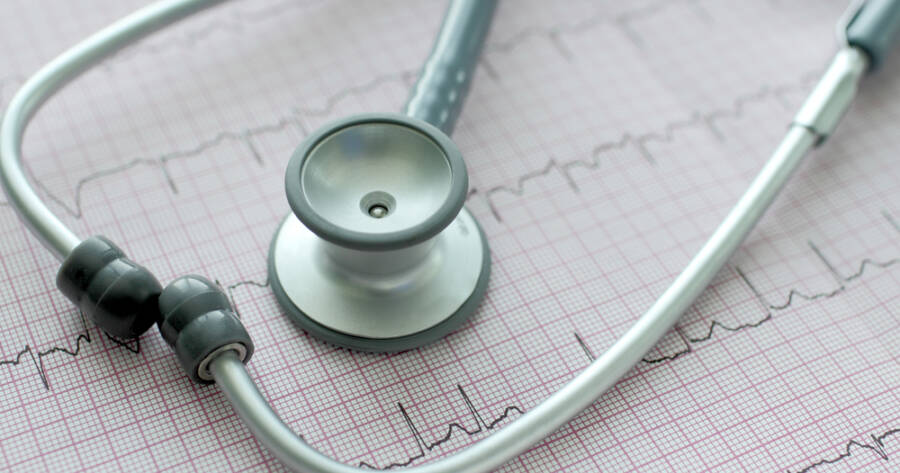Atrial fibrillation (AFib) is one of the most common types of heart rhythm disorders, affecting millions of people worldwide. While it may start subtly, AFib can lead to serious complications if left unmanaged, including an increased risk of stroke or heart failure. Recognizing the signs early and understanding their significance can be life-changing. This article explores the key indicators of atrial fibrillation, why you should pay attention to them, and how they might affect your overall health.
What is Atrial Fibrillation?
Atrial fibrillation occurs when the upper chambers of the heart (the atria) beat irregularly and out of sync with the lower chambers. This irregular rhythm can disrupt blood flow, potentially causing clots to form, which may travel to the brain and lead to a stroke. AFib episodes can be occasional or persistent, with symptoms ranging from mild to severe.
It’s important to note that not everyone with AFib experiences symptoms, making regular checkups crucial, particularly for individuals with risk factors like high blood pressure, obesity, or a family history of heart issues.
Common Symptoms of Atrial Fibrillation
1. Irregular or Rapid Heartbeat
One of the hallmark signs of AFib is a heart rate that feels irregular or unusually fast. This sensation, often described as “fluttering” or “racing,” may last for a few minutes or persist for longer periods. While a fast heartbeat isn’t always a sign of a serious problem, repeated episodes could signal an underlying issue like AFib.
2. Fatigue and Weakness
Feeling excessively tired or weak without clear cause could indicate a heart rhythm issue. AFib can reduce the heart’s efficiency in pumping blood, leading to lower energy levels and diminished stamina. This symptom is easy to overlook, particularly in busy lifestyles, but it’s worth monitoring if fatigue becomes chronic.
3. Shortness of Breath
Difficulty catching your breath during everyday activities, such as walking or climbing stairs, can also be a warning sign. In some cases, shortness of breath may occur even at rest. This symptom may result from AFib’s impact on blood flow and oxygen delivery throughout the body.
4. Dizziness or Lightheadedness
AFib can interfere with blood supply to the brain, leading to episodes of dizziness, lightheadedness, or even fainting. While occasional dizziness might stem from less serious causes like dehydration, recurrent episodes may warrant further investigation.
5. Chest Pain or Discomfort
Some individuals with AFib report chest pain or pressure, which can be alarming. While chest discomfort is not always a direct result of AFib, it’s critical to seek immediate medical attention to rule out other conditions such as a heart attack.
6. Palpitations
Heart palpitations, or the feeling of your heart “skipping a beat,” are a classic sign of AFib. These sensations can vary in intensity and frequency but may feel unsettling. Keep track of any palpitations you experience, as they can provide valuable information for healthcare providers.
Who is Most at Risk?
While anyone can develop atrial fibrillation, certain factors can increase your likelihood of experiencing it:
- Age: AFib is more common in older adults, particularly those over 65.
- High Blood Pressure: Uncontrolled hypertension places extra strain on the heart, raising the risk.
- Obesity: Excess weight is associated with an increased likelihood of AFib.
- Chronic Conditions: Diabetes, sleep apnea, and thyroid disorders have all been linked to a higher risk of developing AFib.
- Lifestyle Factors: Smoking, excessive alcohol consumption, and a sedentary lifestyle may also contribute.
Understanding these risk factors can help you take proactive steps to monitor your heart health.
Why It’s Important to Recognize AFib Early
Catching atrial fibrillation early can make a significant difference in managing the condition. While the symptoms can be subtle or intermittent, even mild AFib increases the risk of complications, such as:
- Stroke: AFib-related strokes tend to be more severe and disabling compared to other types of strokes.
- Heart Failure: Prolonged episodes of AFib can weaken the heart over time, potentially leading to heart failure.
- Cognitive Decline: Some studies suggest a link between AFib and an increased risk of dementia or memory issues.
Addressing the condition promptly allows healthcare providers to tailor treatment strategies, which may include lifestyle changes, medications, or procedures to restore normal rhythm or prevent complications.
What to Do if You Suspect AFib
If you notice any of the signs mentioned, it’s important to consult a healthcare provider. They may recommend diagnostic tests like an electrocardiogram (ECG) to confirm whether you have AFib. It’s also helpful to keep a journal of your symptoms, noting their frequency, duration, and any potential triggers (like caffeine or stress).
While AFib can’t always be prevented, managing risk factors such as maintaining a healthy weight, staying physically active, and avoiding excessive alcohol can reduce your chances of developing the condition.
Taking Charge of Your Heart Health
Atrial fibrillation is a serious but manageable condition, especially when detected early. Paying attention to symptoms like irregular heartbeats, fatigue, or shortness of breath can lead to earlier diagnosis and more effective management. While the presence of symptoms doesn’t always confirm AFib, they are signals your body may need medical attention.
By staying informed and proactive, you can protect your heart health and potentially reduce your risk of complications like stroke or heart failure. When it comes to AFib, awareness is your strongest ally—so don’t ignore what your heart might be trying to tell you.

